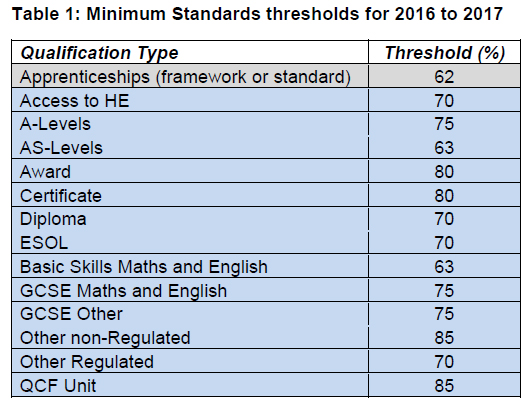The government has fired a warning shot at organisations seeking to undermine the independence of final apprenticeship exams with the release of new guidance this month that specifically prohibits “collusion”.
The Education and Skills Funding Agency has acted after an FE Week investigation earlier this year found employers in three sectors preparing to exploit a loophole that would allow them to grade their own apprentices.
The new conditions for organisations on the register of end-point assessment organisations are stark.
“You must not collude with other EPA organisations, providers, employers or any other organisation in the delivery of end-point assessment,” states the guidance, released on September 5.
It defines collusion as organisations entering the register “with the express intention of delivering end-point assessment to each other’s apprentices” or “circumventing the requirement both for the employer to select the EPA organisation and for separate and independent assessment”.
“We will view such reciprocal arrangements as deliberate collusion which will not only undermine the independence of end-point assessment but also limit open competition in the EPA organisation market,” it warns.
EPA rules dictate that exams must be carried out by an independent assessor to ensure impartiality.
This normally means that the person who does the assessment must work for an organisation separate from both the company employing the apprentice and the training provider.
But, as FE Week reported in February, an exception granted by the former skills minister Nick Boles in 2015 allows employers in the retail, hospitality and travel sectors to assess their own apprentices, provided they can show the assessor is independent from the apprentice.
The Department for Education told FE Week that any employer wishing to do so would need to be on the register of assessment organisations.
However, we found evidence that certain employers had sought to circumvent this rule.
One established assessment body admitted it was in talks with employers about taking on members of the employer’s staff as consultants to carry out assessments.
Other bodies which may have less-than-robust processes for ensuring an independent assessment are also understood to be exploring this model.
Stephen Wright, the chief executive of the Federation of Awarding Bodies, warned that the new guidance was “full of requirements that are open to interpretation”.
He suggested that organisations were not being given enough time “to properly digest” the guidance, as they “are required to sign a statement of compliance within less than three weeks”.
He hit out at the “complete lack of consultation” on the new conditions, which he said had led to “confused interpretation, contentious clauses that need proper discussion and a timescale that is far too short”.
He claimed that the regulatory burden for assessment bodies had “exploded” in the past two years.
“There is only so much regulation that an organisation can bear, and the real risk is that good assessment organisations will withdraw from situations where they can provide excellent assessment but just can’t keep up with the regulatory demands,” he said.
A DfE spokesperson said: “As part of the administration and operation of the register of end-point assessment organisations, the ESFA reviews all applications received in line with the criteria set out in the pre-application guidance.
“In terms of organisations who are on the register, as indicated in the conditions, the ESFA will collect information on the end-point assessment organisations on a regular basis in order to build a profile of their activity and ensure they are operating within the conditions.”

